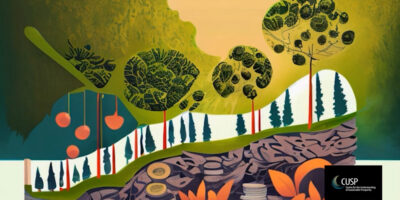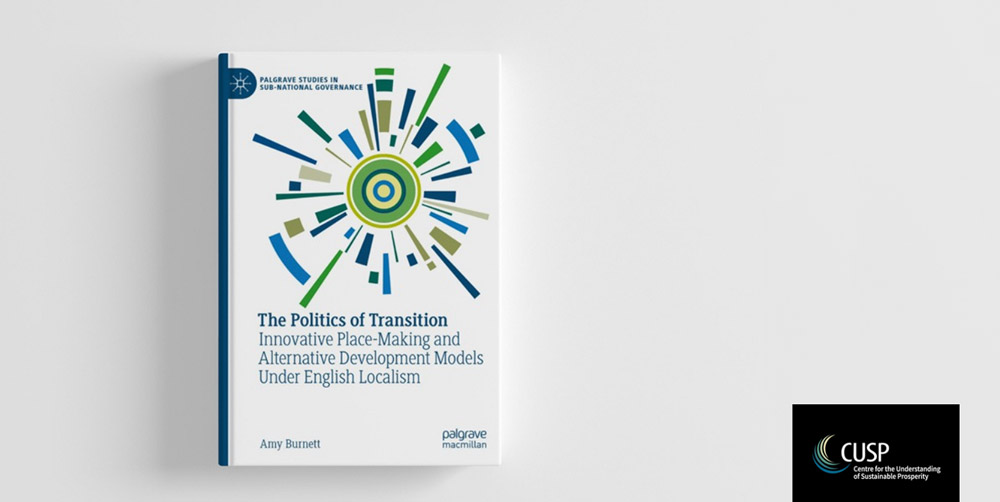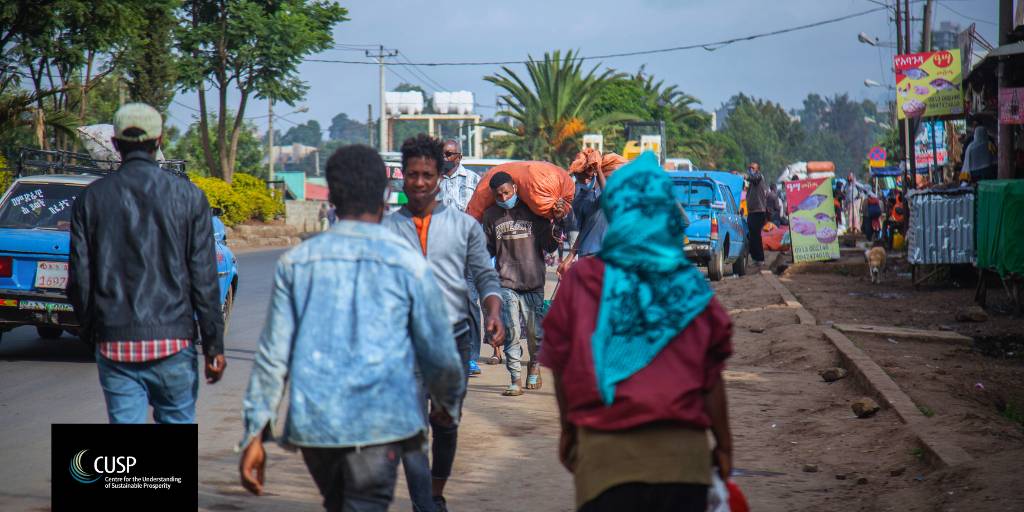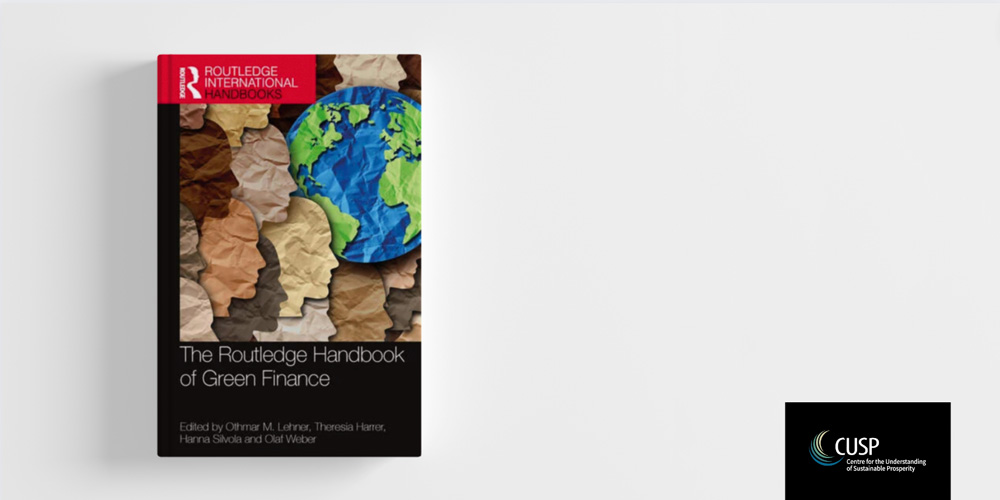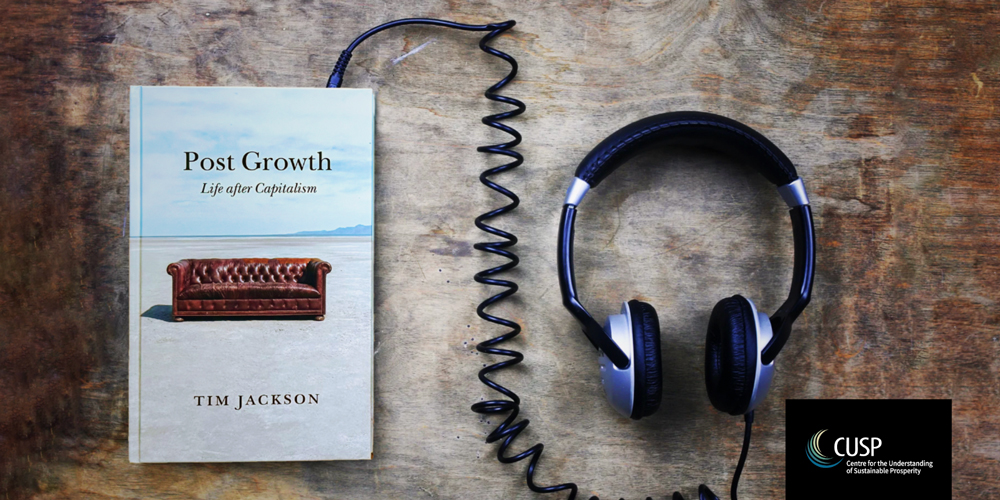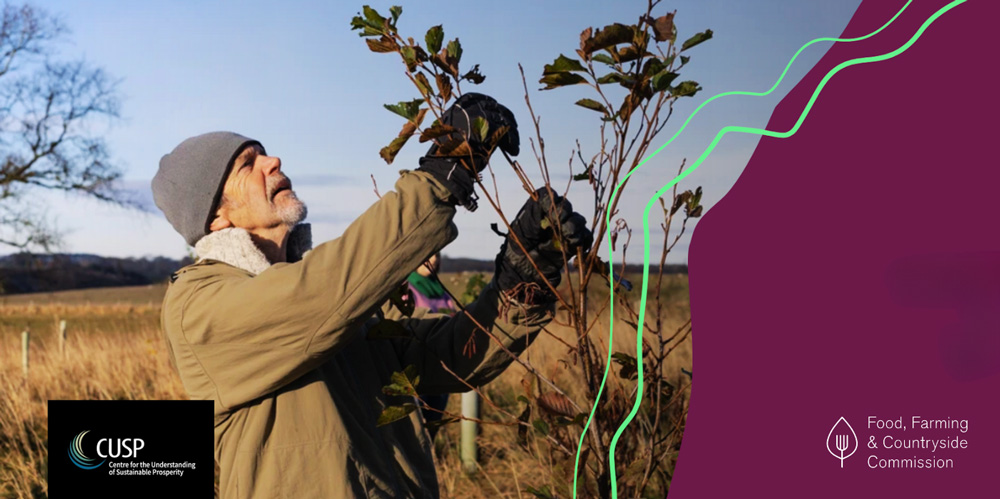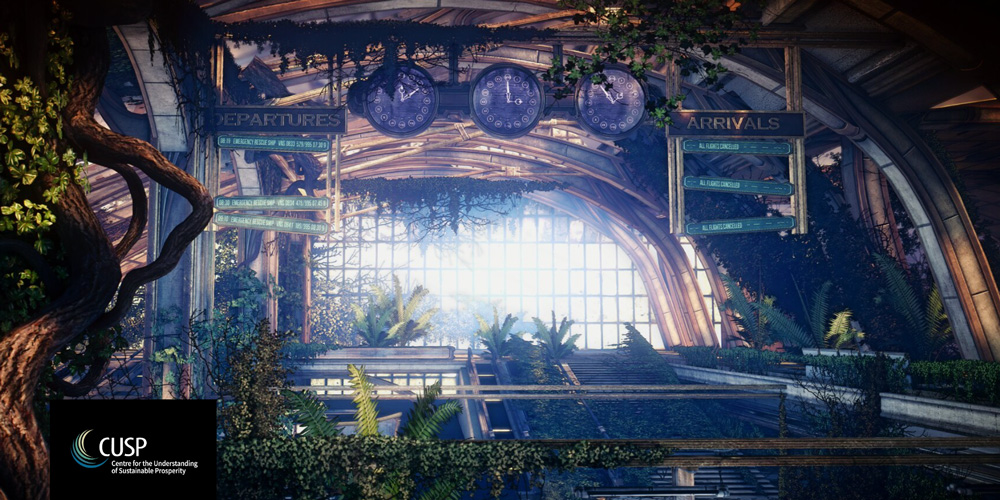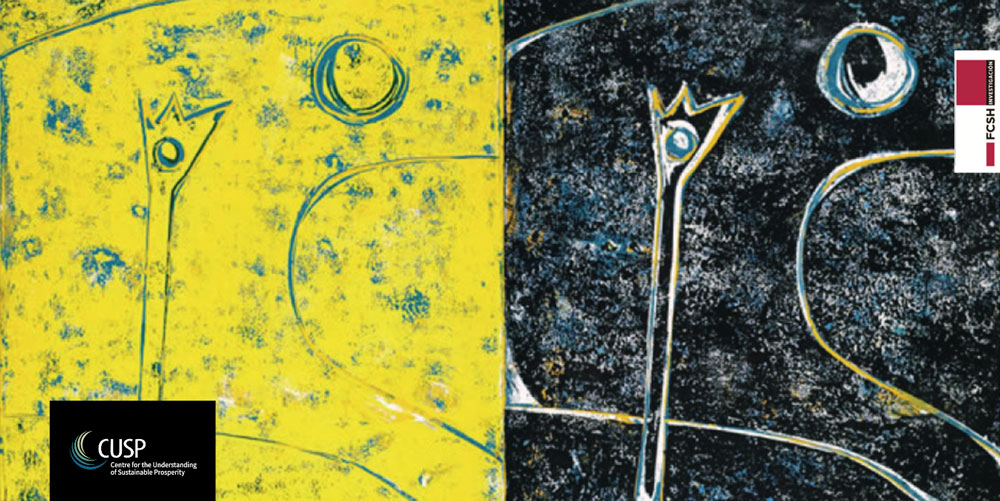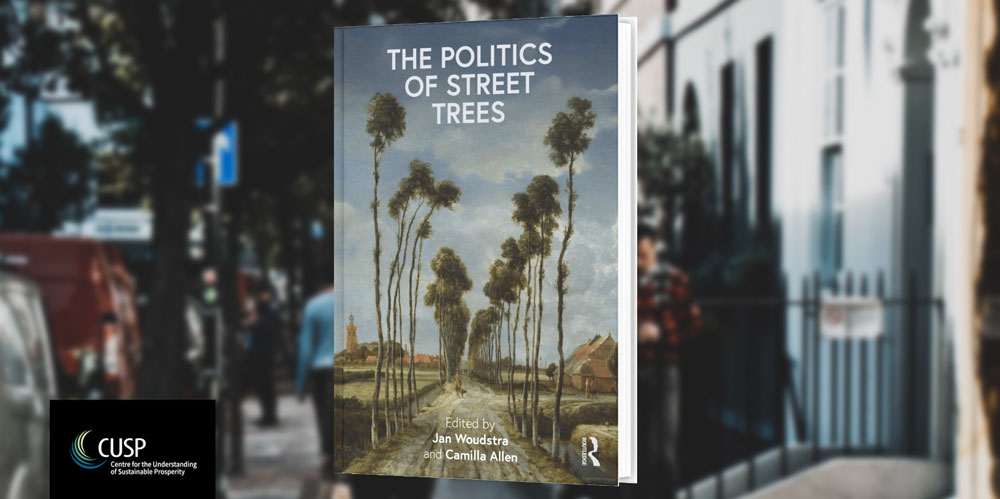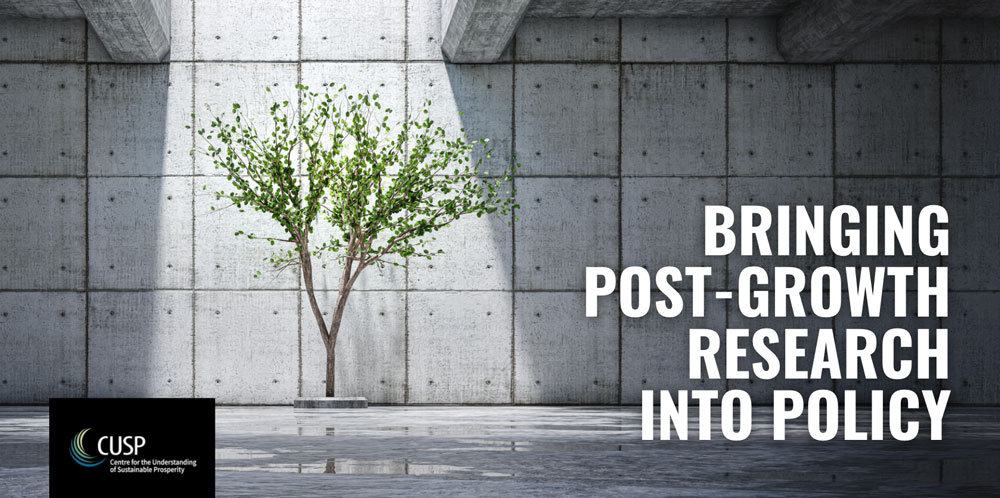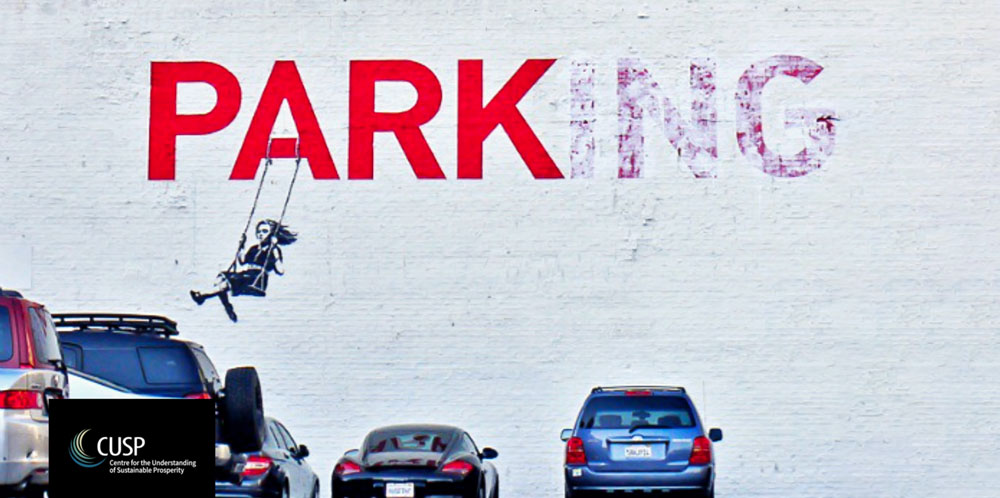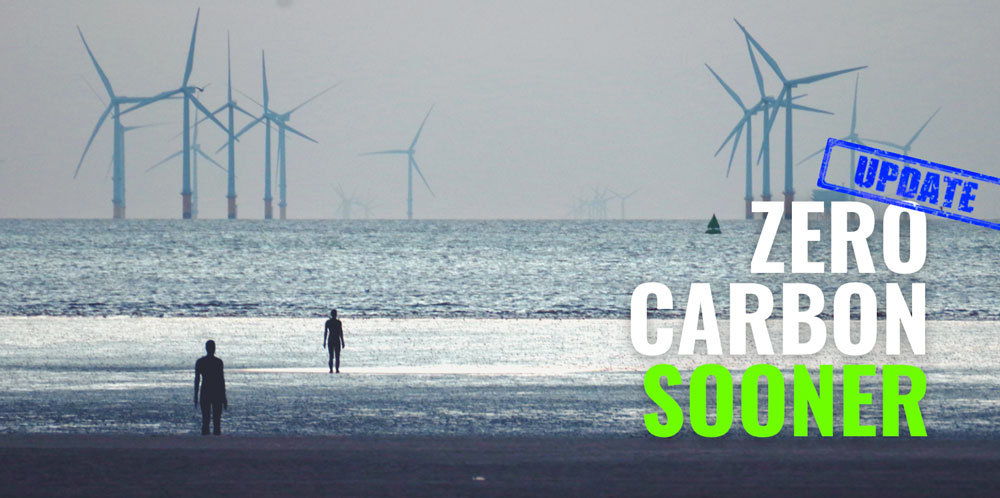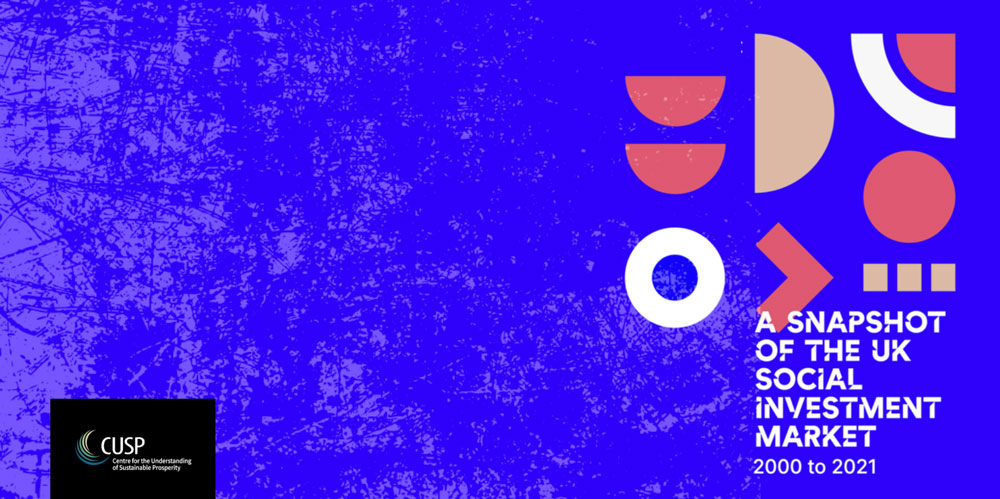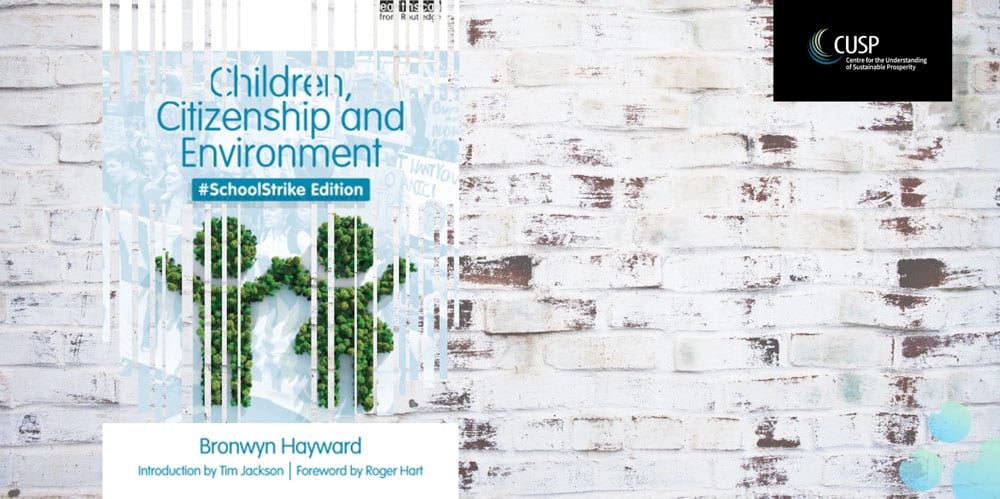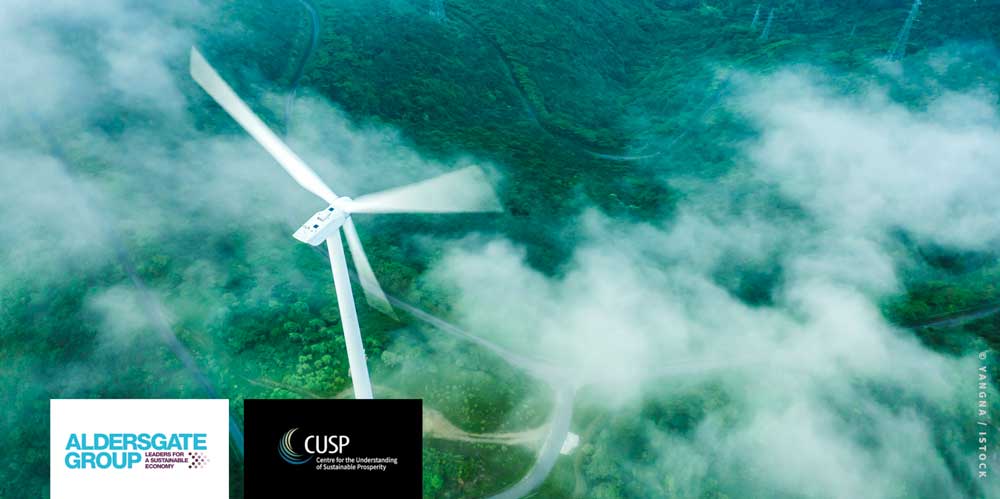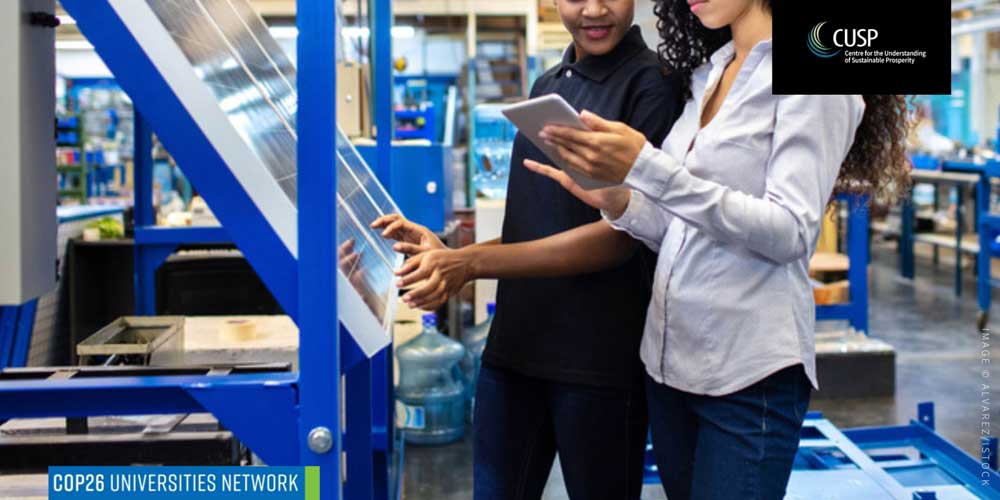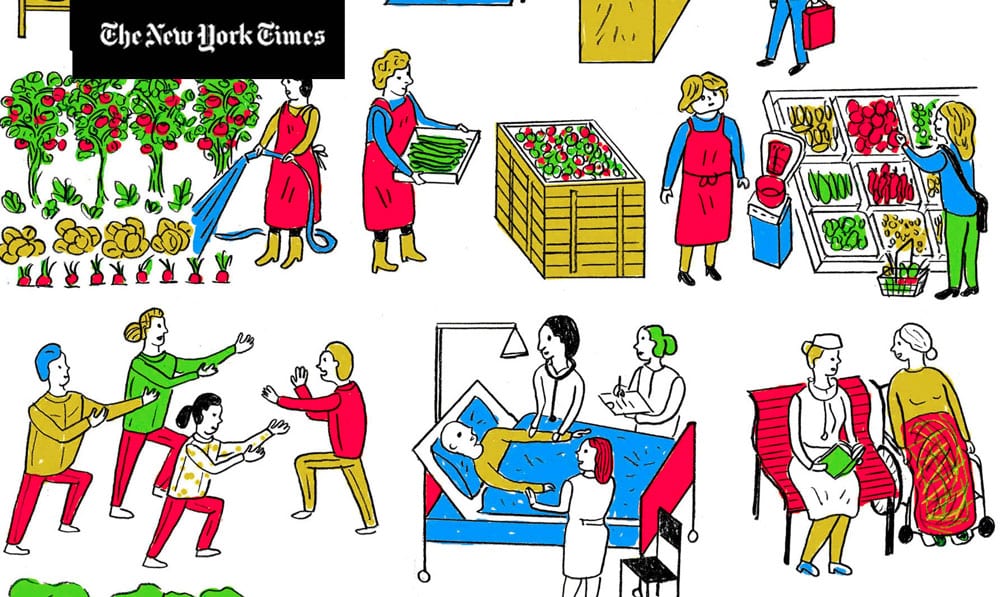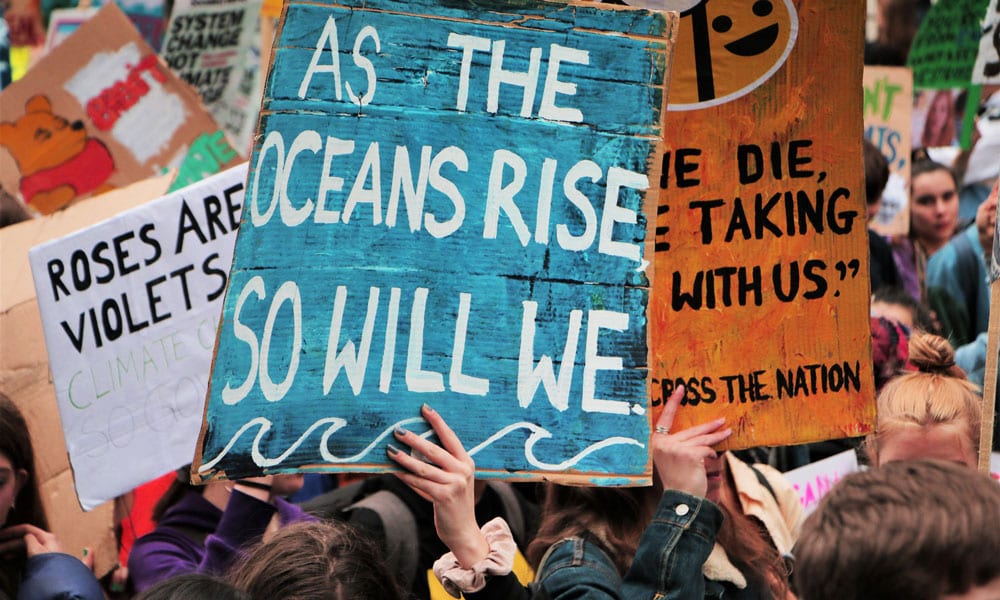THEMES / POLITICS & ENTERPRISE
P | Political and Organisational Dimensions of Sustainable Prosperity
This theme explores grassroots transitions to sustainability, alternative enterprise forms, investment models for sustainable prosperity, and the range of political institutions related to the ‘ecological state’. At one level we explore the grand narratives of political legitimacy looking at the challenge of governance in the face of constrained resources. At the micro-level, we explore grassroots initiatives for change to see how alternative ownership and incentive structures can deliver a more sustainable prosperity. Browse through updates from this theme on the news page.

Summary
We look at innovative activities related to sustainable prosperity in local communities, within organisations and businesses, and within the state. Our focus lies on examining the forms of governance and institutions at local, regional, national and international scales. We understand governance here as the processes by which rules and actions are produced, sustained and regulated, and the way in which these are enacted through institutions in the public, private and third sectors. This provides insights into how such transitions and innovations have emerged, the challenges and tensions faced, and the ways in which individuals, communities, organisations and governments can navigate their way to alternatives. The research is shaped by a dialogue with our partners including Social Enterprise UK, Aldersgate Group and World Futures Council.
Blog posts
Programme
P1 | Grassroots Transitions – Prefiguring Sustainability
Since the second wave of grassroots environmentalism emerged in Western societies in the 1970s, environmentalists have pursued grassroots initiatives in a way that prefigures what a sustainable society would be like in practice. This research explores the dynamics of associational activity directed at sustainability and examine the complex relationship between formal governmental systems and social movement initiatives. It does this through exploring traditions of small scale sustainability initiatives and the contested meanings to local community members and environmental activists. Prefiguration here is taken to refer to experimentation and creation of alternative social norms or ‘conduct’, and their diffusion. We explore these issues in a range of place based communities recognising the wide range of current community activities (Transition Town Movements, community energy, waste management, city farms etc). In recent years these ‘prefigurative projects’ have often been closely connected to public institutions through funding and collaborative planning and community engagement. This necessary engagement with the state has been the source of dilemmas and tensions within activist communities. The research is using qualitative methods (archival work, semi-structured interviews and observation) and social network analysis to map relations between grassroots groups, other parts of civil society and political bodies.
P2 | Alternative organisational forms
While much debate is focused on large corporates, there is a need for further research on alternative ‘hybrid’ models that pose a challenge to conventional models of business combining the logics and practices of the commercial sector with a core social and environmental mission. Our research examines these alternative models and explores the interplay between different values and perspectives within organisations. Particular attention is given to community business models, working in partnership with Power to Change Trust, and to circular business models, working in partnership with Climate KIC. Research on the circular economy and social enterprise is being conducted in Nigeria and work has been completed on social enterprise models in Bhutan. The management of these alternative organisational forms raises specific issues and we are researching, in partnership with Social Enterprise UK, how mutual models provide an alternative to hierarchical systems, bringing employees and other stakeholders into more democratic decision making. We also examine the social, environmental and organisational performance of social enterprise models paying particular attention to procedures for accounting and measuring environmental and social value.
P3 | Investment for sustainable prosperity
This project examines different alternative investment models for sustainable prosperity. While most small organisations tend to rely on their own funds, there is a growing industry of ethical and social investors. While some of these forms are similar to conventional investment models, others are radically different. There is also a growing involvement of the public sector in innovative funds for sustainability. Our review of this work explores the range of different approaches and the support ecosystem facilitate the effective use of sustainability related finance.
Partly through our CUSP partnership with the Aldersgate Group, we are feeding findings into policy and practice in UK and around the world.
P4 | Governance and institutions for sustainable prosperity at the micro and macro scale
Building on the other projects in this theme, here we explore the implications of redefining prosperity on forms of governance in general, and democracy in particular. This research is contributing to the debate about the ‘green state’ and assess how political institutions, culture and practices both challenge sustainable prosperity and create space for alternatives. Sustainable prosperity raises particular questions for the nature of democracy in the context of the need for urgent action related to averting environmental disaster, and the need to intellectual freedoms that challenge dominant interests and present social and political alternatives. It does this at a range of scales from the very local, to national and international institutions.
The transition to sustainability requires a general ethos of questioning, pushing boundaries, reflexivity and opening up new horizons. Such open, participatory and inclusive forms of governance allow processes of reflection, with a range of different voices. The relationship between democracy, reflexivity and sustainability is hence closely interrelated yet poorly understood. We explore the different process innovations and approaches to deliberative democracy, recognising that such political cultural processes are both potential inhibitors of change and a potential enabler. Our research is examining the nature of existing structures of democracy as they relate to different dimension of sustainability and resource use. This work would consider the institutional structure and governance interactions between public, private and third sector actors at a variety of scales.
We also investigate the different attempts to move towards sustainability through institutional arrangements, constitutional provisions, and general duties in legislation, at the level of the nation-state and devolved administration. This work is carried out through desk research and interviews, and in dialogue with others to make connections with the literature about “the ecological (or environmental) state”. It alsos feed into the Centre’s Nature of Prosperity Dialogue through exploring the relationships between environmental thought and democracy.
Projects
Publications
This paper explores how small fashion entrepreneurs challenge the mainstream industry’s focus on novelty and growth, prioritising sustainability through virtue-driven practices. Using data from 27 UK-based entrepreneurs, it examines ‘postgrowth entrepreneurship’ as a pathway to a more sustainable fashion industry.
Book by Amy Burnett, exploring planning reforms and alternative local governance, using Frome, Somerset, as a case study. It examines sustainable development under localism and community-based futures, offering insights into placemaking, politics, and public policy.
This report focuses on how to finance the green transition of established SMEs in England. Prior demand-side research demonstrated that surveyed SME access to debt finance for the ‘green transition’ is uneven across the UK and that smaller, less resourced SMEs in more remote locations from banking centres may be most disadvantaged.
This paper explores the crucial issue of financing early-stage green startups, focusing on the types of investors, financial models available, challenges these startups face, and how the green finance ecosystem can better support them.
This study provides an empirical assessment of how effective the WHO’s Global Monitoring Framework for non-communicable diseases (NCDs) has been in improving COVID-19 resilience in low-income countries. Our findings suggest that future global health policies should focus on the link between NCDs and infectious diseases, especially for vulnerable populations.
The Social Enterprise Food Systems project has been exploring how social enterprises can introduce innovations for healthy and sustainable food. We are delighted to launch our Good Practice Guide, which draws on our research, the experiences of our social enterprise partners involved in the project.
Democratic enterprise and economic governance are crucial for addressing societal challenges where hierarchical models fail. This paper examines collective capabilities in 12 mutual social enterprises, exploring how interactions foster collaboration and support organisational democracy.
In this briefing, the Aldersgate Group together with CUSP outlines necessary next steps from Government to accelerate the adoption of high-quality nature-related disclosures. This follows the announcement that 320 businesses and financial institutions have registered as early adopters of the Taskforce on Nature-related Financial Disclosures’ (TNFD) disclosure framework.
The Routledge Handbook of Green Finance offers an authoritative overview of green finance—its characteristics, principles, mechanisms, and the interplay within environmental, social, and governance measurements. The handbook also critiques existing practices and poses future research questions.
We are pleased to announce the release of the audiobook edition of Tim Jackson’s prize-winning book “Post Growth—Life After Capitalism”. Through his own narration, Tim brings a personal touch to the profound themes of Post Growth, offering an accessible and engaging experience for audiences to absorb his insights on the go.
This Aldersgate Group report with CUSP calls on the UK Government to provide a strong legal basis for financial regulators to support the transition to a net zero and nature positive economy. It finds that financial regulators are limited by a narrow mandate on climate, capacity and resource constraints, and a lack of comprehensive net zero-aligned policy across the economy.
Written by CUSP researchers Fergus Lyon and Amy Burnett, this report for the UK Food, Farming and Countryside Commission seeks to understand how new and emerging markets in natural capital fit into a changing landscape for farmers.
Climate activists are confronted with an increasing tension between the need for urgent climate action and a sense that it could already be too late to prevent ‘dangerous’ or ‘runaway’ climate change. This paper investigates the narrative shift, its impact on activism, and strategies that overcome its temporal contradictions.
As part of a new edited collection that aims to stimulate a new research agenda around ‘transformative metrics’ and encourage existing and new methodological approaches to be applied to the study of social and technological change, this contributing chapter by CUSP researcher Dr Amy Burnett puts forward a conceptual framework for the promotion of ‘regenerative value’.
The role and importance of social enterprise has continued to grow as a positive and inclusive response to the multiple economic, societal and environmental challenges of the past decade. A recent report, commissioned by the Department for Digital, Culture, Media and Sport (DCMS), examines the sector and identifies its scale in the UK.
SMEs play a key role in transitioning to net zero. Theresia Harrer and Robyn Owen explore why funding problems are so persistent for early-stage Cleantech ventures. An institutional logics lens is adopted to analyse how key actors’ perceptions and communications of the Cleantech value proposition shape information asymmetries, and how these may be overcome.
Phil Catney and John Henneberry use evolving policy and practice around protection and management of street trees as a vehicle for examining the relations between the competing paradigms of corporatism and neoliberalism, and the ways that they are expressed ‘on the ground’.
Paper by Robyn Owen et al investigating how external finance, including public supported schemes, impact on the low carbon and ‘green’ growth of UK SMEs?
This Aldersgate Group report with CUSP calls for rapid action to implement and strengthen the UK Government’s proposed reforms on climate reporting and disclosure. The briefing also outlines the next steps that must be taken to support corporations and financial institutions to comply cost-effectively with these new requirements, and ensure that new reforms help deliver genuine emission reductions in the real economy.
Business models providing used clothing to consumers have the potential to reduce pressure on raw materials and primary production. This research used in-depth interviews and a literature review to improve understanding of alternative business models in the fashion sector.
A critical and evidence-based account of the COVID-19 pandemic as a political–economic rupture, exposing underlying power struggles and social injustices. By CUSP researchers Will Davies, Nick Taylor, and PERC colleagues.
Drawing lessons from a six-month project funded by the Laudes Foundation, as well as from a wider review of evidence, this report analyses the barriers to bringing postgrowth research into policy. It concludes by making recommendations on the keys to doing this more effectively.
Critically evaluating existing literature, this paper discusses the potential of tripartite partnerships (TPPs) to advance sustainable consumption practices. The authors argue that multi-sector partnership approaches can strengthen a socio-political basis for the advancement of public policies and inter-sectorial dynamics offering mechanisms that can foster sustainable consumption.
How do Business Accelerators and Business Angels’ assess the human capital of socio-environmental mission led entrepreneurs? This paper investigates the role of entrepreneurs’ human capital on the potential of newly created ventures to receive equity funding from Accelerators and Business Angels using a resource-based approach to entrepreneurship theory.
Building on a longitudinal interview-based study, the authors examine how micro, small and medium enterprises (MSMEs) in the UK fashion industry advance the circular economy (CE).
Calls for social innovation to help with the effort to halt biodiversity loss are manifold. Yet, a systematic overview of research on social innovation and biodiversity is missing and this paper contributes by focusing on social innovation to tackle the drivers of biodiversity loss and unsustainability.
The clothing industry is a significant contributor to environmental degradation. Yet, easily accessible life cycle inventory (LCI) data that can be used in decision making by practitioners and researchers are lacking. This study addresses this gap.
New study examining the fashion design process as practised at the mass-market level. The mass-market design process is found to prioritise profits rather than aesthetic aspects, with the buyer exercising more power than the designer. This hinders creativity, which, in turn, may impede a move towards more environmentally benign designs.
The economic system to which we are in thrall throws us out of balance, Tim Jackson and Julian Sheather write in this blog. By failing to meet our most essential needs it is doomed to immiserate and, ultimately, sicken us. We urgently need to regain a richer, more satisfying understanding of ourselves, and our place in the world.
This is a book which is set out to help children learn about climate change and support them in understanding some of the solutions to the many problems the world is facing. The cross-institutional project was led by Prof Aled Jones at the Global Sustainability Institute. It includes lesson plans and activities for children to help them think about the world with climate change, how they can be active in responding to its challenges and what might happen over the next ten years.
This paper is an update of an earlier briefing note, revised to take account of new findings from the IPCC’s updated 6th Assessment Report (AR6). The broad aim of the paper is to establish how soon the UK should aim for (net) zero carbon emissions.
This article addresses a pertinent question facing government policymakers: how best to support VC to achieve climate change objectives? Based on over 100 in-depth interviews, it focuses on the supply-side policy, design, and implementation of four UK government-backed venture capital funds (GVCFs) at various stages of their development.
Interest in the social and environmental ‘purpose of business’ is growing. Could it be part of a move towards a better kind of economy and what kind of investment is needed? CUSP Fellow Dr Jess Daggers points to the history of the social investment market in the UK as a source of insight into the attempt to combine financial tools and social purpose.
This paper presents a systematic approach to identifying, analysing and transforming growth dependencies in the welfare state. Using adult social care as our case study, we explore how growing demand, rising costs and rent seeking can create growth dependencies. We analyse the structures that drive and reinforce these growth dependencies and, in so doing, we identify fruitful levers for transformation and mitigation.
A new joined-up post-Covid biodiversity policy paper argues that addressing biodiversity loss requires a transformative change of the global economic system, and concludes that the COVID‐19 pandemic, and current delays in the negotiation of the post‐2020 global biodiversity agenda of the Convention on Biological Diversity heighten the urgency to build back better for biodiversity, sustainability, and well‐being.
This paper proposes a new, integrative typology of actors involved in climate change mitigation policy in the United Kingdom (UK) and a method for mapping these actors and selecting their typological descriptors onto a 2D space.
Mainstream environmental politics has become a largely technical, problem-solving matter of realising concrete targets—environmental politics scholarship seems to have followed suit. This article contends a solely target-driven discourse loses sight of two vital dimensions of environmental politics: radical imagination and ideology critique.
A new, significantly revised second edition of Bronwyn Hayward’s acclaimed book Children Citizenship and Environment is out now. Our CUSP co-investigator from Canterbury University NZ and colleagues examine how students, with teachers, parents, and other activists, can learn to take effective action to confront the complex drivers of the current climate crisis, including: economic and social injustice, colonialism and racism.
Current global changes require new business approaches driving sustainable development on all fronts. To date, most business approaches have focused on sustainable marketing and corporate social responsibility initiatives. In this field study, we examine IKEA’s Live Lagom project.
Recent attempts by local governments to engage in participatory policy-making hint at a willingness for a more democratically inclusive approach to policy. However, there is often a gap between the rhetoric of citizen engagement and the actual implementation of these policy-making initiatives.
Following extensive cross-industry and civil society engagement, our partners at the Aldersgate Group published a new report, setting out some of the key policy decisions that need to be taken in this parliamentary term to put the UK on a credible pathway to building a competitive, net zero emissions economy.
The transition to net-zero cannot be sustainable if it creates or exacerbates social inequalities. In a new COP26-Universities-Network briefing, the authors—including CUSP co-investigator Dr Marit Hammond—emphasise that the impacts of climate change and the policy measures implemented to mitigate them, vary greatly depending on place, time and social contexts; and identify a number of tools for policymakers to meet targets whilst also upholding social justice.
Compiled by academics at three UK universities, this report presents a profile of participants in Extinction Rebellion’s (XR) mass civil disobedience actions in London in April and October 2019. The report is compiled from three datasets: a protest survey of participants in each of these two XR actions; observational analysis of court hearings of XR activists; and data from a previous survey of participants in two climate change marches 2009/10.
This paper presents the results of a thematic coding analysis of a workshop comprised of senior accountants and actuaries who were asked to consider how a future of sustainable prosperity can be enabled by the finance sector. We found that mindset, skills, external drivers and decision boundaries were key themes that create barriers to change.
When it comes to the status of democracy, the current times present a curious chasm: On the one hand, the depoliticisation of contemporary discourses and institutions has led to a legitimacy crisis of democracy; yet on the other, there has been a resurgence of normative democratic ideals and practical ‘democratic innovations’ in the sphere of civil society.
The challenges facing the world and the UK today are unprecedented. A global health emergency, a global climate crisis; and a catastrophic loss of biodiversity, are undermining the basis for future prosperity in the UK and across the world. This article, written for The New York Times in 2012, speaks to the theme of restoring the value of decent work to its rightful place at the heart of society.
In The Politics of the Anthropocene, John S. Dryzek and Jonathan Pickering set out to re-evaluate not just environmental politics, but all politics. Now that humanity has inescapably entered the Anthropocene, a new kind of politics is needed that takes seriously the fundamental, human-induced instability this new epoch stands for.
This paper examines the implementation of governance arrangements to extend ownership and control to employees and community stakeholders in social enterprises. Evidence from a sample of newly created public service social enterprises in England shows how the realisation of democratic ideals involves a gradual and often challenging process.
Variations in the character, performance and impact of policies and practices to capture land value for the community are usually examined by analysing experience in different countries. This paper examines the relations in England between the extant political economy and supporting ideologies, and the distinctive forms of land value capture that they produced. The analysis highlights the evolution of the idea of land value capture and the policies and practices associated with it.
How might a Green New Deal be applied to the early stage financing of Cleantechs? Amidst rising interest and adoption of Green New Deals in the US, the paper explores the need for more focused policy to address early stage long horizon financing of Cleantechs.
Individuals are increasingly using everyday life choices about consumption, transportation, or modes of living to address political, environmental, or ethical issues. While celebrated by some as an expansion of political participation, others worry this trend may be detrimental for democracy. This first detailed longitudinal analysis is investigating these hypotheses.
Processes of politicisation and depoliticisation are increasingly studied in relation to urban contexts, and cities have been depicted as incubators of social movements. What has been largely ignored is why, in some cities, forces of politicisation or depoliticisation are stronger than in others.
This article emphasises the tension between environmentalists’ radical ambitions on the one hand, and pragmatic organisational considerations on the other. The paper suggests that competing arguments about (de-)politicisation can be reconciled first by considering that ‘the political’ has at least three different dimensions, and second by taking account of how activists reflexively navigate the different challenges posed by each of these dimensions in their strategising.
What are the capacities of the state to facilitate a comprehensive sustainability transition? This paper argues that structural barriers akin to an invisible ‘glass ceiling’ are inhibiting any such transformation. First, the structure of state imperatives does not allow for the addition of an independent sustainability imperative without major contradictions. Second, the imperative of legitimation is identified as a crucial component of the glass ceiling.
What might break the ‘glass ceiling’ that has so far prevented a deep sustainability transformation? In this paper, Marit Hammond considers the cultural dimension of such a transformation, adding nuance to the debate around democracy and sustainability.
Despite the development of the environmental state, climate change is accelerating. The concept of the ‘glass ceiling’—denoting an unexplained barrier, impeding the state from using its powers effectively to mitigate threats that it acknowledges should be addressed—has been put forward to account for this. In this paper, a structural account of this phenomenon is advanced with a view on the ‘growth imperative’.
The Climate Innovation Insights Series are analytical pieces that draw lessons from a diverse set of case studies on pioneering projects and start-ups in the EIT Climate-KIC community. The third collection is co-edited by Geraldine Brennan, and reflects the recognition that the circular economy agenda and low carbon agendas are interlinked and mutually reinforcing—making scaling up the circular economy an urgent imperative.
The RSA Food, Farming & Countryside Commission with CUSP director Tim Jackson as Commissioner and Chair of the Research Advisory Group have published their final report, calling for radical 10-year plan to transition to sustainable food system with more government support for healthy produce.
This paper seeks to illuminate a ‘green populism’, using Hannah Arendt’s analysis of the tension between science and politics. In Arendt’s account, Western philosophy and science is predicated on a rejection of the mortal realm of politics, in search of eternal laws of nature. However, the pressing mortality of nature has pushed it back into the political realm, turning it into a political actor in its own right, Will Davies argues. Where nature itself is defined by its mortality, environmentalism and political action acquire a common logic, that could fuel a participatory, egalitarian, green populism.
A multi-country collaboration report, with contributions from CUSP researchers Joost de Moor and Brian Doherty. The team of social scientists from universities across Europe organised a survey of the global Fridays for the Future strike events on March 15. The team surveyed protesters in 13 cities in nine European countries using the same research design to collect data, following the well-established protest survey methodology.
In his essay for CUSP, Simon Caney argues that existing political systems are resolutely focused on the short-term and that this both harms current generations and is leading us to bequeath a deeply unfair and dysfunctional world to our descendants. To address this, we need to re-imagine ways of organising our political life to make the ‘future’ salient and visible, to jolt us out of our fixation on the present, and to induce us to look ahead and give the ‘future’ its due.
Tim Jackson contributing to a new edited collection by the European Think tank DiEM25: A Vision for Europe. “With contributions from some of the world’s foremost thinkers, artists and politicians covering the full spectrum of concerns for the future of the Union, A Vision for Europe presents realistic and viable alternatives to the mainstream barrage of dreadful prospects—a true vision for Europe.”
Institutions for transformative innovation need to improve the capacities of complex societies to make binding decisions in politically contested fields, a new journal paper by CUSP researcher Daniel Hausknost and his colleague Willi Haas argues, proposing the design of novel institutions that integrate expert knowledge with processes of public deliberation and democratic decision-making.
What are the political foundations of an ecologically sustainable society? Can—or must—they be democratic? Absolutely ‘yes’ Marit Hammond argues, for sustainability is a moving target that requires a reflexive cultural ethos based on democratic values.
How does one determine which of the many strategies associated with circular economy are appropriate to pursue? In this chapter Fenna Blomsma and Geraldine Brennan apply systems thinking to outline four steps that aid in identifying where and why waste is being generated in the current system, and what the available circular strategies are.
Conceptualising firms from a business ecosystem, value-, or supply- network perspective captures the boundary-spanning nature of value creation. To explore the relationship dynamics that enable or inhibit sustainable value creation, we present a comparative case study of how situational logics and power relations are embedded in business models within a UK brewer and its malt supply chain.
Even the most perfect democracy can only represent the wishes of people currently alive. But how can the interests of members of future generations be safeguarded in political systems? This paper outlines different ways in which this could be achieved through reforms to the UK political system, and then looks in more detail at examples in other countries.
This paper focuses on the role of the public sector in addressing finance gaps for longer-term investment requirements from seed investment through to early growth commercialisation of green innovation activities. Peer reviewed literature is identified from international studies, complemented by illustrative policy documents where evidence of impact is reported.
As environmental crises become ever more severe, calls for authoritarian solutions are reappearing: Democracy, so the argument goes, has proven to be too slow to respond to urgent threats. In this paper, Marit Hammond and Graham Smith respond to this charge by revisiting the role of democracy within a transition to sustainable prosperity.
Edited by Geraldine Brennan, the second series of Climate Innovation Insights shares understanding of how to nurture and sustain cross-sector collaboration to scale up the circular economy and Accelerate the transition to sustainable production systems.
The publication of Prosperity without Growth was a landmark in the sustainability debate. This substantially revised and re-written edition updates its arguments and considerably expands upon them. Tim Jackson demonstrates that building a ‘post-growth’ economy is not Utopia—it’s a precise, definable and meaningful task. It’s about taking simple steps towards an economics fit for purpose.
This paper explores the ramifications of the combined crises now faced by the prevailing growth-based model of economics. In paying a particular attention to the nature of enterprise, the quality of work, the structure of investment and the role of money, the paper develops the conceptual basis for social innovation in each of these areas, and provides empirical examples of such innovations.
Understanding sustainable prosperity is an essential but complex task. It implies an ongoing multidisciplinary and transdisciplinary research agenda. This working paper sets out the dimensions of this task. In doing so it also establishes the foundations for the research of the ESRC-funded Centre for the Understanding of Sustainable Prosperity (CUSP).
With their latest publication, Nathalie Rühs and CUSP Co-Investigator Aled Jones look at the role and rule of law in the making of society and the arguments for a paradigm shift from an Anthropocentric ontology to a more Earth-centered one.







